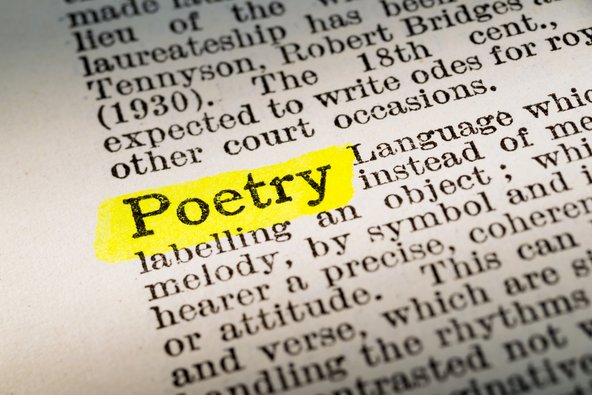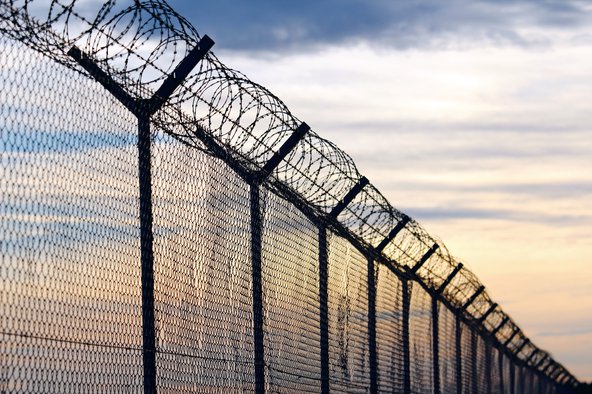How poetry can represent research
by Dr Duduzile Ndlovu
21 Mar 2018
Today is World Poetry Day, and in South Africa, where I live and work it is Human Rights Day, a national public holiday commemorating the 1960 Sharpeville massacre. Is there a way poetry and human rights can come together? And is there a way that poetry can be used as part of research on rights-based issues?

Credit: iStock user stockcam
Poetry is one way that researchers, myself included, have tried to involve participants in making sense of research outcomes; it is also seen by some as a way to foster more humane interactions between a research subject and researcher. The potential benefit of using poetry as part of research is something I continue to ponder. There are different ways poetry can humanise research: it helps to infuse otherwise technical or verbose research reports with emotion.
Poetry is also in the economy of words. Is it possible that poetry is the missing link for sharing research stories with an audience beyond academia? What usually happens after we conduct our research and have rich data to make our academic arguments? The participant has done their part and we move on to write for an audience and world that rarely includes them. For some, this traditional approach is sufficiently ethical, if the overall project has been guided by informed consent and the dignity and safety of participants. But are we missing something? Perhaps participants could engage with the outcomes of research abridged into a succinct poem. A lot of our research happens without this feedback loop, where we go back to participants and have them critique or approve our representations.
Humanising ‘the other’
Would we have a different public response to the European migrant 'crisis' if we were offered more than just statistics, an ever-growing number of people pushed back into the sea, or deported, or classified as ‘undocumented’, ‘unskilled’ or ‘unwelcome’?

Credit: iStock User kodda
In recent years, we have witnessed increasingly vicious xenophobic violence. Brexit came with verbal and sometimes physical attacks on those seen as non-belonging as seen in media reports about attacks on Polish migrants. South Africa has experienced episodes of violence that have at times been fatal. Would poetry help us engage the emotions and fear of the unknown, while simultaneously humanising the ‘other’ so that we are not so quick to fight?
Communicating research outcomes through poetry
In 2015, I began writing poetry for self-care, a strategy for maintaining my mental and emotional health as I moved forward with my indomitable PhD thesis. My thesis focused on memorials to Gukurahundi (state army perpetrated violence against civilians in Zimbabwe in the 1980s) by Zimbabwean migrants in Johannesburg, South Africa. It was time of data analysis and trying to put pen to paper. As this was all happening, I found myself reflecting on the research process and writing poetry to make sense of the data.
My self-care strategy eventually led me to a solution for a challenge I was facing: how to include participants in the outcomes of my research.
I ended up summarising my thesis into seven poems that non-academic audiences could indulge in if so inclined. The seven poems were later included in follow-up workshops with participants. Participants were given a chance to read the poems, listen to a reading of the poems and feedback to the researcher.
Below are two poems, one a summary of my thesis and the other based on the response it triggered from one participant. The two poems reflect on the lives of migrants in Johannesburg, where – like so many other contexts – ‘corruption’, paying bribes or using irregularly acquired documents, is the tariff migrants pay to remain in host cities. I reflect on what it means for the migrants who desperately need to make a life elsewhere, yet who are deemed by states to be not ‘refugee’ enough. Zimbabweans in South Africa were for a long time called economic migrants and thus disqualified from claiming asylum because Zimbabwe did not fit into the profile of a refugee-sending country.
The workshops I led with participants were uncomfortable spaces for me; I was opening up my work for scrutiny by participants, something that very few academics do. This discomfort proved to be a useful provocation for reflecting on the importance of research truly representing the people it claims to speak about.
Illegal Immigrant
Sweet words
I keep
Under my tongue
So when you stop me
I negotiate
The bribe price
Of my freedom
Call me
Any name
I am here to stay
I will find a job
Any that affords me
To stay
I pay daily
For my stay
Yet they still
Call me
An Illegal Immigrant
A response by a participant in my research
MIGRATION
Sawafulathela amakhaya
Sawela imifula
Sadabula amazwe
Sesibizwa ngamabizobizo
Asisela sithunzi
Ngokubasemazweni
Sesikhohliwe amasiko
Translation:
We turned our backs on our homes
Crossed rivers
Went through foreign lands
Now we are called strange names
We have lost our dignity
We have forgotten our customs
Happy World Poetry Day!
Dr Duduzile Ndlovu is a Post-Doctoral Researcher at the University of the Witwatersrand and a Newton Advanced Fellow. This Fellowship is a collaboration between University of the Witwatersrand and the University of Edinburgh.


